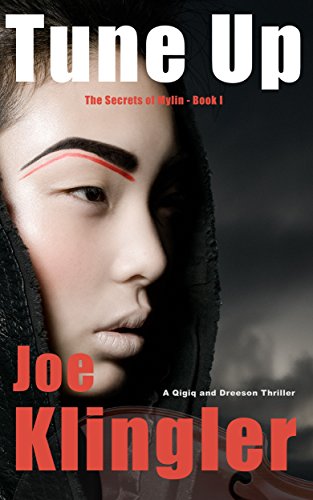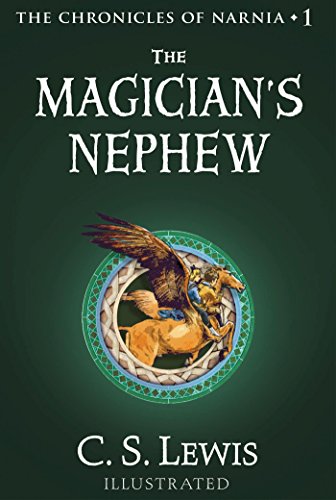Orangeberry Virtual Book Expo’s AwardWINNER, YOUNG ADULT FANTASY
Mom’s Choice Gold Award
Reader’s Favorite Gold Award
Wise Bear Books Gold Award…now just 99 cents!
suspenseful fantasy…”
Readers’ Favorite
Lose yourself in a wild journey to a sister planet of Earth in this fresh and entertaining take on the classic young adult fantasy quest…a magical adventure for readers of all ages…
The Silver Sphere (The Kin Chronicles)
by Michael Dadich
Shelby Pardow never imagined she could kill someone. That’s about to change.
All she wants to do is hide from her troubled father… when she is teleported to awaiting soldiers on the planet Azimuth. Here she is not a child, but Kin to one of the six Aulic Assembly members whom Malefic Cacoethes has drugged and imprisoned. He seeks to become dictator of this world (and then Earth by proxy).
His father, Biskara, is an evil celestial entity, tracked by the Assembly with an armillary device, The Silver Sphere. With the Assembly now deposed, Biskara directs Malefic and the Nightlanders to their strategic targets. Unless….
Can Shelby find the other Kin, and develop courage and combat skills? Can the Kin reassemble in time to release or replace the Assembly, overthrowing Malefic and restraining Biskara?
Praise for The Silver Sphere:
Couldn’t put it down!
“…an excellent, epic fantasy novel. The creatures are truly amazing…reminded me of LOTR meets The Hunger Games. I highly recommend it for fans of the genre!”
Action packed
“…will reel you in with twists and turns and a sense of adventure…extremely well written with detailed character development and intense plots…”
an excerpt from
The Silver Sphere
by Michael Dadich
Chapter 1
“Your world will be over soon, won’t it, dear Bianca?”
The cloaked creature rasped out the syllables one at a time, and each sound pushed Bianca closer toward the cold stone floor. Moonlight splashed across the room from a wall of windows. Even if she could have yelled, no one would have heard her. Pain made her dizzy.
As the assault on her consciousness raged, she struggled to her feet against the heavy stupor overtaking her body. Her limbs shook. The long table in front of her provided only a moment of support before she collapsed upon the solid oak board.
Her vision blurred from the pressure, and a murmur gurgled from her throat as she tried to call out to the Assembly members hunched in their chairs. The maroon wine spilled across the table told of their downfall. Were they unconscious or dead? She couldn’t begin to guess. Her goblet remained almost untouched.
“How easy this was….”
The din of his words made her gaze upward, where a hood surrounded his darkened features. Screams echoed in her head, though no sound broke from her lips.
He knelt beside her and whispered, “Dear Bianca.” His hands caressed full chunks of her raven hair, and he started pulling the strands through his fingers.
Horror traveled down her spine and numbed her. She felt the escape of fainting descend upon her, fogging her mind; how she wanted to drift off and shun the maddening fear. Yet he would not let her. She tried in vain to pull away, but his power over her was too great.
“Don’t.” She must have said it aloud because his grip tightened and he jerked her head back, forcing her to look at him. She gasped as he pulled the cowl away.
Her tormentor had a pallid complexion and a high forehead. Long, wiry auburn hair framed his narrow face, at the center of which sat a nose snubbed like a snout. It was the piercing glare of his eyes that caught her, though. Their intensity made her skin crawl.
“Malefic,” she mouthed, her breath releasing in a terrified wheeze.
He loosened his grasp and eased her to the floor. Then he stepped over her body and slithered to the head of the table, admiring his handiwork.
Bianca’s legs and arms stiffened. Malefic oozed power, and as she watched him, her mind reeled. What had led to such laxness in their security? Where had he come from?
We were betrayed, of course, she thought, as unconsciousness bid her closer to blackness.
Malefic turned and glared into her eyes, a sneer twisting his expression into a grotesque mask. “The Aulic Assembly is mine.” His harsh voice pulled her to the brink. “Father will be pleased.”
Chapter 2
Shelby Pardow sat across the table from the beast. Her cereal rested on her tongue like paper, and she melted the particles to avoid any crunching. She planned every movement she made. Were it possible, she’d escape the beast without exchanging a single word with him.
Her father, Byron, had barged in from his night out. At eight o’clock that morning, the sickening-sweet scent of alcohol and cigarettes remained on his breath.
She needed to be cautious; after he drank gin, the devil possessed him. She glanced up at his rumpled clothes, haggard expression, and gray stubble along his jaw. His depression had worsened since Mom abandoned them.
He munched a slice of cold pizza left over from dinner earlier that week. His behavior turned her stomach sour. She needed him—well, except when she needed to avoid him.
Dang it all. How did I forget to set the iPod alarm last night?
The beast glared at her from across the table. “So, to what do I owe the pleasure, missy?”
The beast only called her “missy.”
“Nothing, Dad. I just wanted to see you before I left for the library.”
Her sweet reply was countered with a snarl. “Oh, really? Or did you oversleep before you cut out to your precious book cave, huh, missy?”
She took small bites of cereal and kept her eyes locked on the blue, flower-patterned bowl. Usually he ignored her when she did not look at him. She hoped today would be the same.
“Answer me!” the beast roared, jarring the table and sending her saucer crashing to the floor. The beast had consumed him.
Shelby winced. Maybe it believed she was her mother. Everyone always said she resembled Samantha.
She glimpsed her father in the beast’s face. He scanned the ground with remorse, and for a moment, she thought he might return after all. Hope, however, was shattered.
The alcoholic creature rose with a howl.
Trembling, she stood and backed away. Her foot slipped on the cereal and milk now layering the slick linoleum, nearly tumbling her down.
“Look what you’ve done now, missy!” The beast growled as he whirled around the table and grasped her by the neck.
Her heart throbbed and her legs buckled.
“I’ll teach you to respect food, missy. Children are starving in this world, some even here in town. Now you eat that food, missy. You eat it right off the floor.”
“Daddy… please….” She managed to choke the words out in between gasps for air, and she sniffled in fear. On the ground, the dish wobbled and skidded a few feet.
“Go ahead, missy.”
Shelby obeyed. Salty tears ran down her face to blend with the flavor of linoleum, low-fat milk, and cereal.
The second he gave an inch, she’d race for the front door. He’d never follow, but even if the beast did, Mr. Dempsey, the kind librarian, would protect her. She’d run straight to him.
The disgusting tang of the floor, and a sudden silence, snapped her back to the moment. The beast had let up, so Shelby stopped licking at the ground and eyed him.
He sauntered to the kitchen sink, poured a tall glass of water, and began chugging it.
Without delay, she got to her feet and charged to the front door. She ripped the deadbolt open, sped down to Bounty Lane, and ran toward Main Street, where the library waited. Houses flashed by, each fronted by a lovely yard, fenced in and tidy.
The beast did not follow.
Shelby halted, shivering in the morning sun, then doubled over and dry heaved. Sweat rolled down her brow and her hair clung to the back of her neck. She wanted to erupt into tears, but she sucked in a lungful of air and shut her eyes, forcing herself to calm down. Everything would be okay now, but she had to remember to set her iPod before the beast came home.
Shelby touched the back of her sore neck. Tears welled in her eyes.
What will I do if the beast never leaves?
She leaned against the rough brick wall of a store. Main Street spread before her with people bustling about their business. Children screamed and ran from a candy shop in droves, sweets in their hands.
Exactly what I need, she decided. Something sweet to wash away the dusty linoleum.
With a wad of money stuffed in her jean pockets, she strolled down the street to the drugstore that sold her favorite drink. She stepped in, but no one stood at the register.
How predictable. Someone made a spill in one of the snack aisles, and Mr. Goodman is mopping up.
She called to him, “Hey, Mr. Goodman! Buying milk!” and left the exact change on the counter for the bottle of strawberry milk.
She swilled the ice-cold beverage down, soothing her throat and rinsing the gross linoleum taste from her mouth, and walked to the exit with empty bottle in hand.
Daddy would be back in the afternoon. And she would talk to him. He’d declare his resolve never to drink again, and profess his never-ending love for her. Everything would be fine. It had to be.
Shelby tossed the bottle in a wastebasket and stepped out onto the street. She scanned both sides of the avenue, though she knew he hadn’t followed. Her body still shook from the beast’s attack. No sign of it on either side of the boulevard. She closed her eyes and exhaled. Confident, she strolled to the library.
The beast may not have even realized she’d left yet; her friends had nicknamed her “ninja girl” for a reason. She’d escaped again, though not without some harm. She rubbed the back of her neck, trying to let it go. Her father would never hurt her, but the beast…. That’s what had done this to her.
The important thing was she’d managed to get away. “Par for the course,” she said to no one.
Shelby arrived at the Rutherford B. Hayes Library, longing for its air conditioning and calm setting to cool her sweaty brow and dampened tee-shirt. She ascended the stairs and breezed through the entrance, where a wash of cold air enveloped her. She paused at the front counter and stretched her hands up over her head, reveling in the cool tranquility of her sanctuary.
Mr. Dempsey gazed up from his notebook, twirling a pencil. In his mid-fifties, he was a sweet man, though stern when necessary.
Shelby’s mind drifted to the time a surly gang of boys ignited the library trash bin with matches. Mr. Dempsey stopped them as soon as he spotted the punks, barking at them like a drill sergeant. The thugs hesitated only a moment before bolting. Her confidence in him swelled after that. The gang had intimidated her friends many times over the years, but never after that.
“Top of the morning to you, young Shelby. Have you been running track? Don’t tell me kids run track in their jeans these days.” Whenever he spoke, he gave her his complete attention. He brushed some eraser residue off his crisp blue chambray shirt and khaki pants while maintaining his gaze.
“Aw, no, Mr. Dempsey, a crazy old stray over on Bounty Lane interrupted my path. I got a li’l nervous and ran over to Main. Hot outside.” No reason to tell him the embarrassing truth. Anyway, private persons didn’t share things that were… well, private. “Any of the computers open yet?”
She inquired as a matter of courtesy; computers were always open this early in the day.
“Take your pick of the four in the back right. I shut off the ones on the left ’til this afternoon to save power. Have fun and stay off the restricted sites.”
The routine soothed her. She felt at home here, as if coming in and saying hello could be as normal as waking up and brushing her teeth. She grinned. Mr. Dempsey always reminded her that not all adults yelled at her or threatened her.
“Of course, Mr. Dempsey.” Shelby glided to the back and slid into a cubicle. She flipped on the computer to study a site referring to magic spells she intended to use to cure her father.
An odd sensation raced up her spine, and she shuddered at the electric tingling. Without making an effort, she grew more alert as she peered at the screen. A dialogue box appeared with a clang.
She jolted. How bizarre. I haven’t even signed onto the instant messenger.
It was different from other windows she’d seen, with a rainbow-colored border around a glowing box. Yet the sender’s identity remained hidden.
She ran her fingers through her dark hair, her right leg rocking up and down.
You are needed.
Perplexed, she spied over her shoulder at the silent library. She stood on her chair and inspected the other cubicles nearby, but all of them sat empty, the computers still off. Maybe a virus had infected this machine.
“Is anyone here? I’m having a problem with my computer.”
No answer. Her attention shifted to the glowing note. It was probably harmless.
She sank back down. “For what?” she typed, and hit the enter button.
At once, a sharp clang signaled another message.
The balance is in their favor.
Your Kin is our savior.
As she is missing,
Biskara is hissing.
An ancient evil has come.
Save us from thralldom.
Please answer our plea for help.
Did she know anyone named Biskara? It seemed vaguely familiar. Shelby had many friends on the Internet, most of them girls her age, in tenth grade. Some of them preferred quirky nicknames, so Biskara could have been one of their handles. Someone was probably playing a joke on her. Sometimes they did that to one another for simple fun, but this was just weird.
She typed, “How?” and hit “send.”
A clang and a note followed.
File down the aisle to the storage room.
We will be there to greet you soon.
Mr. Dempsey might know what the message meant, or at least he could check its validity. She knew where the storage room was; last summer, she and some other kids had helped Mr. Dempsey clean the dark cavern. It was little more than a creepy closet near the back of the main section of the library. One glaring light hung with a cord in the middle of the gloomy antechamber. Just the thought of searching for that cord, in the dark by herself, sent chills down her spine.
A voice disrupted her thoughts. “How are we doing today, Miss Shelby?”
She jerked back from the monitor and gasped. “Mr. Dempsey.”
“Oh, I’m sorry, Shelby. I didn’t mean to sneak up on you. My silence is a curse sometimes. I thought I heard you call out.”
“I did. I did.” She tried to calm her panting. “Look at these messages, Mr. Dempsey. That one said they need help against an ancient evil.”
She took a deep breath as Mr. Dempsey studied the dialogue box. Unlike the beast, he always listened to kids.
“Hmm, the storage room? I was just inside not twenty minutes ago, and nobody else is here except you. The O’Connor boys and some of their friends left right before you arrived, and that’s been the traffic this morning. I suppose we ought to investigate, eh?”
“I do believe so.” She relaxed, relieved to have his company.
She followed him over to the storage room. The entryway was solid oak, like all of the other doors.
Mr. Dempsey turned the handle and pushed it open. “Is anyone here?”
Silence.
He proceeded to the hanging light while Shelby tentatively strode behind him. A strange, damp chill hung in the air—colder than air conditioning should have made it. She shivered and rubbed her arms as goose pimples swelled over her flesh.
Mr. Dempsey tugged the cord, but the bulb did not turn on. He pulled the cord a few more times, but still no light.
“The bulb must be out. I have extras at the front desk in the bottom drawer. Why don’t you grab one, Shelby?”
“Sure, Mr. D.”
She turned and shuffled toward the door, which whirled shut with a bang. Shelby gasped and her heart jumped. Without light from the entrance, the room went pitch black.
“Mr. Dempsey?” she cried out.
Chapter 3
“Geek!”
“Loser!”
Zach Ryder halted and peeked around the corner of the school hallway. The final bell had rung almost ten minutes ago, and the tiled halls loomed empty. Well, mostly.
Four massive brutes shoved one of Zach’s friends into the row of metal lockers. One grabbed Adrian by the cuff of his shirt and walloped him.
Adrian whimpered. His small hands flailed in an attempt to cover his face.
Zach’s guts churned. If he tried to assist, they’d pummel him. But he couldn’t just hide. He and Adrian had known each other since third grade.
Zach glanced around in hopes of finding a teacher. No one appeared, and the teacher’s lounge was on the far side of the school. If he bolted for aid, Adrian would be a bloody mess by the time he returned.
The fire alarm across the hall caught his attention. The little red box never looked so inviting.
Without hesitation, he scooted over and tugged the white handle. The bell reverberated down the corridor. He turned back to glimpse the bullies scrambling, yelling, “Fire drill now? Let’s beat it before teachers get down here. We’ll finish with you another time, wimp!”
Zach raced over to his friend and knelt beside him. “Adrian, are you okay?”
“Yeah, sure,” his friend muttered through a bloody lip. A shiner already swelled over his right eye, his spectacles askew.
“Can you walk? We need to split.”
Adrian groaned as Zach pulled him up and threw Adrian’s arm around his neck. Zach realized how much smaller they were compared to their antagonizers, as he hefted Adrian’s bag over his other shoulder and grunted.
“Geez! What do you have in here?”
Adrian didn’t reply.
They hurried out the exit opposite the one the bullies had gone through. Zach sensed commotion behind, as teachers scurried around trying to figure out the cause of the blaring. Only a few of them had arrived at this end of the school, no doubt looking for any students left from band or soccer practice.
Zach shouldered the door open and he and Adrian slipped out of the building unnoticed. Once outside, he guided Adrian down to the green lawn. He dropped the heavy bag of books and wiped a layer of sweat from his brow.
“Did you pull the alarm?” asked Adrian, eyeing Zach as he fixed his glasses. One of the arms had been bent and he struggled to straighten it.
Zach nodded. “Yeah, I… I didn’t think I’d find teachers quick enough.”
Adrian smirked. The smashed lip looked only half as bad when he smiled. “Thanks. I’ll have to remember that one.”
Zach plopped down beside him, the grass cool and soft. “No problem. Is your mom on her way?”
“Not for another hour. Math club today.”
“Wanna go to the five-and-dime?” Zach eyed the school. If Gordie and his gang found them out here, he wouldn’t be able to pull a fire alarm to escape. “We can get some ice for your eye.”
Adrian picked at the lawn, snapping blades and dropping them in a neat pile. “I dunno, Zach. I might just head home.”
“I’ll walk with you.”
“You don’t have to.”
Zach noticed the tears welling in Adrian’s eyes. The other boy wiped them away as his mussed brown hair whipped in the breeze. He looked miserable.
“I want to. You’re my bro,” said Zach. “I’m not going to have you go home alone. Come on, I’ll carry your bag.”
Adrian stood. Zach offered to let him lean against his shoulder, but Adrian shook his head.
“I’m good. Just a little freaked out.”
Zach hoisted the book knapsack over his back. “No problem.”
They paced in silence for a time. Zach considered teasing his friend, but nothing sounded right. Being beat up was terrifying—Zach had suffered his fair share of bullying.
Cars zoomed by on Harding Boulevard. They lived a good three miles from the school, but by the time they reached his neighborhood, Adrian started chatting again.
“I did buy a new fatpack,” he said with a smirk. “I didn’t think I’d do enough chores. Forty dollars down the drain!” He laughed.
“Did you open it yet?”
“Oh, of course. And you’ll never guess what I got!”
“Which series?” Zach asked. He didn’t immerse himself into Magic the way Adrian had, but he understood the game well enough. Sometimes they’d play together. Zach liked his Sliver deck. If he pulled the Sliver Queen out, almost nothing stopped it.
“New Phyrexia, duh,” Adrian said with a snort. He grinned, then winced and touched his split lip. “Anyways, I got Karn! The Planeswalker! Can you believe?”
Zach shook his head. “I never understood Planeswalkers. They seem to break the game.”
“Nah, you have the Eldrazi to balance everything.”
They reached Adrian’s place, a ranch style, red brick house with a sprawling front yard. A single cottonwood stood sentinel in the center of the lawn. The tree was already dropping cotton across the plot.
“We’ll have to play a game. You gonna be okay?” Zach stuffed his hands in his pockets.
“Yeah.” Adrian shrugged a frail shoulder and took his bag. “Thanks again, Zach. You’re a good friend.”
“No problem. Take care, bud.”
“Hey, want to come in and play a quick game, like the old days?”
“Nah. I should have been home by now.”
“You sure? Come on! It’s not like they would even notice.”
Zach glanced at him.
Adrian pushed his glasses back into place, but the arm was still crooked and they kept sliding down his nose. “Umm, I didn’t mean that.”
“Cool.” Zach sauntered off and waved.
“See y-you tomorrow,” Adrian stammered, then jumped inside his house.
The stroll to his house relaxed Zach. Late afternoon sunlight beckoned the rich gold of early autumn. Long, purple shadows cascaded across the sidewalk and street. A picket fence sent lengthy spikes over the tarmac of the road, spearing the lawns on the other side.
Soon, he left the smaller neighborhoods behind, and sighed. The homes where he lived stood too uniform, lacking character and warmth. His house appeared more box-like than all the rest. He hiked up the winding drive to the front door.
The spare key hid behind his mother’s pot of azaleas. He fished it out and unlocked the door, carefully replacing the key before he went inside. The moment he entered the house, he wished he’d gone around back.
“No, I don’t have a clue where your special mug is! Just use another one!”
“You’re the one who always puts everything away! Where’d you place the dang thing?”
“I didn’t put it anywhere! I bet you left it upstairs! Did you even check?”
Zach rubbed the bridge of his nose and sighed. He began to ease his way up the flight of elegant wooden steps when his mother shouted, “Zach, is that you?”
“Oh, smart, Sharon. Get the boy involved!”
“He might know where your stupid mug is!”
Zach retreated down into the kitchen. The tiled floor and marble countertops made the room feel cold. Even the dark wood of the cabinets didn’t help warm the kitchen. He shivered.
“Hi, I’m here.”
His mother stood with hands on hips. “Zach, where were you?”
“Adrian got beat up. I walked him home.”
And, as usual, it went in one ear and out the other. “That’s nice. Where’s your father’s mug?”
“I don’t know. Didn’t you hear me?”
“Of course.”
Zach rubbed his temples and muttered, “You never listen.”
“Zachy, if you know where my mug is, speak up,” said his father, who patrolled the counter, tearing through the cupboards. “And, Sharon, be a dear and make me a snack. Some of those marshmallow treats?”
“Oh, and while I’m at it, should I wash your car?” Her voice rose in pitch.
Zach backed out of the kitchen. By the time they were both screaming, he had whipped out the back door and dashed to the guesthouse. The French doors beckoned him, promising to keep him safe from the tension of his family life. He trooped inside, locked the door, and breathed a sigh of relief. Now he could be a normal kid.
His computer—not the ones his parents used, but his, the one he had scrimped and saved for about three years ago—hummed happily on his desk. He slipped into the comfortable chair and switched the monitor on. The computer chimed to life. Once the loading screen had gone, he accessed the chat. Maybe Adrian would be online. He really wanted to talk to someone.
The sound of clanging swords made him jump. A message popped up.
YOU ARE NEEDED.
Zach paused. For such a small dialogue box on his computer, the brief text shouted in capital letters. Why did it appear so different from the usual exchanges? Had Adrian or another friend discovered some new technique? It couldn’t be from his foster parents. Sometimes they messaged him after calming down, to coax him back inside for dinner—if they remembered he existed.
No, they were still shouting.
Mouth agape, he stared at the note: YOU ARE NEEDED.
The box flashed on his screen, awaiting a response. How curious. A joke from his friends? If it was Adrian, he would play along—or maybe not. He was tired of games right now. Zach typed in, “Who is this?” and sent it back.
A brief silence intensified the next loud bang. The jangle made Zach’s skin crawl. Never before had an instant messenger ring resounded with such violence. The noise conveyed something unearthly in the dialogue box.
In a different world and another time,
your alter ego will brilliantly shine.
You and others just like him
are very close to next of kin.
These heroes gone and evil hissing,
the sphere’s power is now missing.
The balance is quickly shifting.
Please heed our call for help.
Zach read the rhyme twice, and goose bumps raced over his skin. His conviction grew surer. Adrian had to be playing around with him. He and his friends would tease each other on instant message now and again—except the box offered no identity.
The queasy unease in his stomach worsened. His hands shook a little as he typed. “How can I help?”
The clang sounded the arrival of another memo.
Step outside and find us waiting.
Promptly now, as we are fading.
He swiveled in his chair. A noise he couldn’t identify emanated from near the French doors—perhaps a bell or a whooshing sound. His blood surged. The pounding of his heart deafened him.
He turned to stare at the message for a minute before rising from the chair. The knot in his gut confirmed that it wasn’t a game, and it wasn’t any of his friends. Before he even touched the knob, both doors swung open and a cold, clammy burst of air whipped through the opening. Knocking knees made it hard to walk and tremors shook his body, but his resolve remained steady.
Zach pushed across the threshold. An unexpected, murky fog lay in front of him. His house loomed ahead, and he headed for the back door. The bay windows from the kitchen, only a short distance away, were a yellow haze as the mist became thicker and darker with each step, cloaking the outlines of his rooftop.
He squinted, trying to find his home. His uneasiness intensified as he hiked onward—no way it should have vanished completely.
On and on he trudged. Grass became compact and stronger, like the scrub of a marsh. Bald patches of earth sprang up where walkways and a trimmed lawn should have been. He continued stepping cautiously, even as he noticed the changing ground. His tennis shoes squished into its spongy, mire-like surface. Where had the well-kept turf gone?
Still, no sign of his home.
The mist grew heavier and his clothing became soaked. He longed for the shouting and anger usually emanating from the house. Even when he stopped and strained to listen, no sounds could be heard; their shouts too had been swallowed by the dense blanket of fog.
Only fear kept him from calling for help. Wherever he stood, this wasn’t home any longer. He ventured alone in the murk, thinking he might have gone the wrong way and ended up near Willows Road, which wound around the back of his parents’ property. Zach turned and began retracing his steps, hoping he could backtrack to the guest house.
No such luck.
He stopped at last by a bulky object that loomed from the brume before him, blocking his path. The mist dissipated. A tree trunk was recumbent in the mud, its girth as wide as he was tall. The tree branches traveled in both directions as far as he could see, and he pondered turning around. The coarse lumber offered several good footholds, so he decided to scale up its side and take a peek. He’d never seen a tree this big before.
Rough bark, sticky with honey-like sap, made the task much trickier than he’d thought. He climbed the immense growth, but hesitated when a voice echoed ahead.
Zach froze to listen.
“What do you mean we’ve lost him, Casselton? The poor lad doesn’t even know where he is.”
“Vilaborg, we do not quite have this down to an exact science.”
“What science do you have down at all, Cassie? The science fair you attended at the fifth level? Don’t you have an approximate idea where the portal opened, or are we to freeze to death looking for the Kin?”
“You know how things go, you fool. Stop behaving like this is your first time. This is not uncommon, Vilaborg. The portal must have opened somewhere nearby. He will turn up. Blazes that the Cark Woods needed to be used for a Kin intercept,” vented a clearly exasperated Casselton.
Zach stayed rooted to the trunk as he processed the new information. These two had opened a portal without being in full command of the science? Adrian would have scoffed! Zach pondered approaching them, but decided to wait. They might be dangerous.
The voices traveled farther away, and he hoisted himself over and dropped to the ground below, landing in a squat. A tingling, like pins and needles, coursed through his body. Zach shivered and looked at his arms and….
His breath caught in his throat as he stared at his clothing. He ran his hands over the shirt and trousers, as if touching them might make them real.
His clothes had transformed. His blue vintage MegaMan top had disappeared. Now the linen doublet he wore made him itchy. Instead of jeans, his legs were covered with brown leather. Squires used to wear such clothing, he recalled from his readings, but that had been a long time ago.
Other things had changed. For one, he’d grown taller—now the trunk of the tree was a head shorter than he. He felt stronger, too. Cold despair quickly replaced awe.
He collapsed against the fallen timber and pulled his knees to his chest. A tear crept down his face.
I’m not Zach anymore, he thought.
… Continued…
Download the entire book now to continue reading on Kindle!
(The Kin Chronicles)
4.7 stars – 92 reviews!!
Special Kindle Price:
Just 99 cents!
(reduced from $3.99 for
limited time only)


























